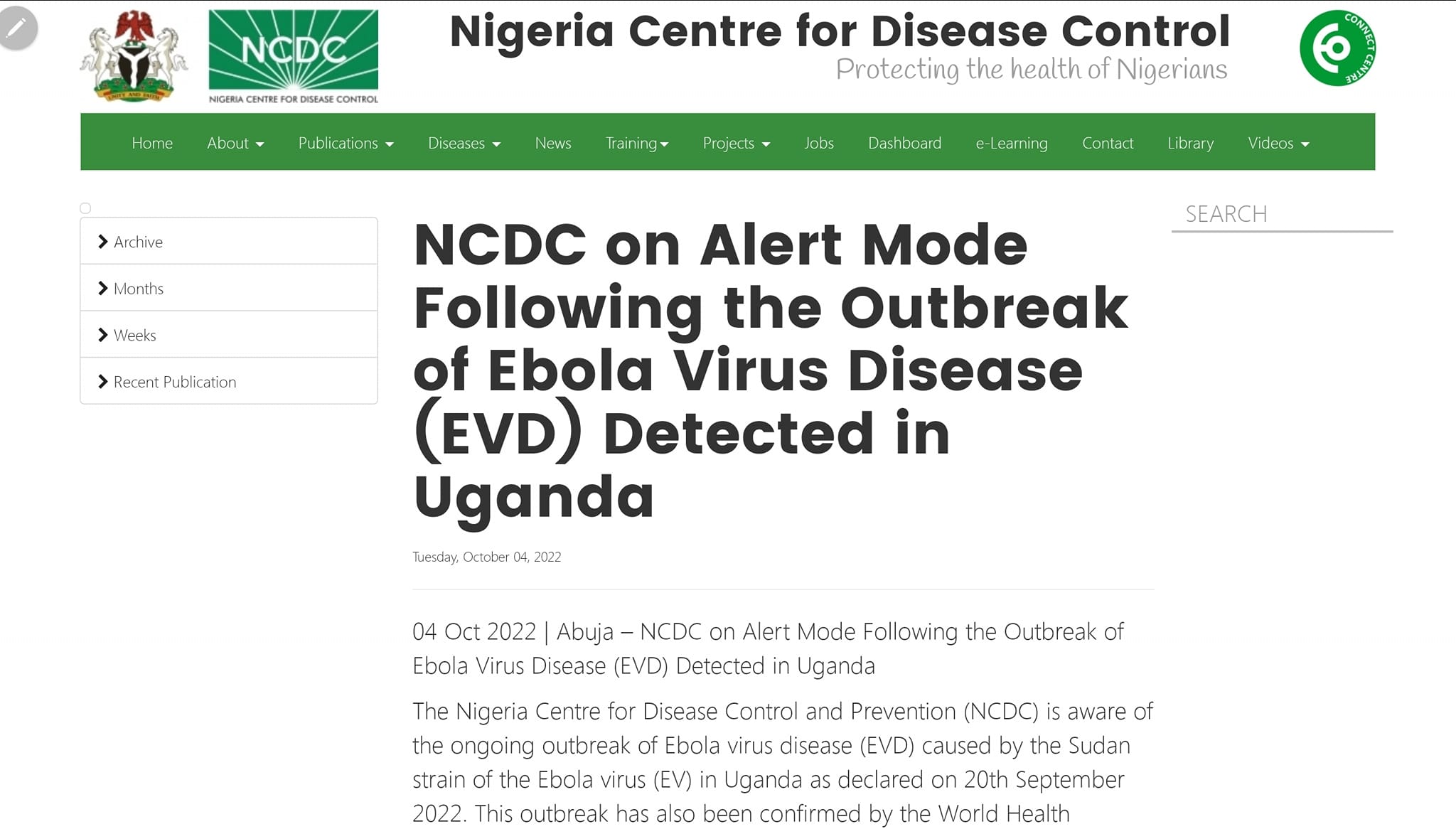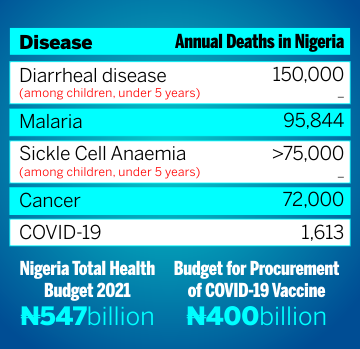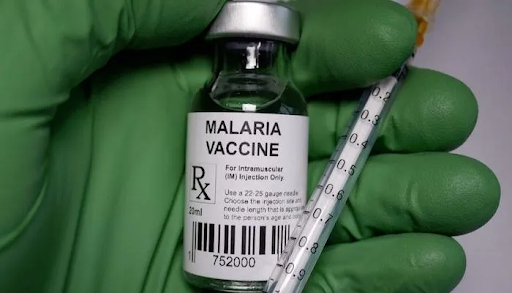LivingScience this Week (Monday January 23, 2023)
NCDC’S Diphtheria Advisory: It’s Stirring, again!
The Nigeria Centre for Disease Control and Prevention (NCDC) is circulating an alert on the outbreak of diphtheria in certain parts of the country. Specifically, the NCDC mentioned Kano and Lagos states as having confirmed cases; while the situation is being monitored in Osun and Yobe states. Just as in the days of COVID-19, the case counts have begun!
In the alert, the NCDC describes diphtheria as “a serious bacterial infection caused by the bacterium called Corynebacterium species that affects the nose, throat and sometimes, skin of an individual.”
Then the big deal, who is at risk? Surprisingly, (and instructively), first to be listed is:
“Children and adults who have not received any or a single dose of the pentavalent vaccine (a diphtheria toxoid-containing vaccine).”
This is really amazing: the people most at risk are not those exposed one way or the other to the bacteria, nor those with some special vulnerability, but those who have not received one particular vaccine!
It’s difficult not seeing here another desperate effort to promote mass vaccination. Indeed the main result (directed at Nigeria) of a Google search with the keyword “Diphtheria” is: “A serious infection of the nose and throat that's easily preventable by a vaccine”
Naturally then, the primary counsel of the NCDC is that everybody troop out to get their 5-in-1 pentavalent vaccine, a formulation, which for economic reasons, has the diphtheria vaccine combined with those for four others: tetanus, pertussis (whooping cough), hepatitis B and Haemophilus influenzae type b.
The LivingScience Foundation, as part of the Coalition Against Mandatory Vaccination, has previously explained our position on vaccines and mass vaccination. While vaccines are to be treated as God’s gift to mankind, the philosophy behind mass vaccination (their deployment en masse) is terribly flawed! Mass vaccination imagines a one-size-fits-all scenario (same dosage of the same product, to all, supposedly without any appreciable contra-indications for certain individuals). No other medical product is such treated!
However, our main beef here is with the very idea of presenting vaccination as the first and primary response to diphtheria, while the other options are only half-heartedly mentioned. We think it makes more sense to prioritize “primary prevention”, whereby people are prevented from being exposed to the vectors in the first place; rather than deploy so much resources and efforts at protecting them from the consequences of such exposure later on. This is especially true when it actually requires far less resources to go in the direction of primary prevention, and where “safety and efficacy” of the solution present no concerns at all. Not to mention substantial concomitant benefits in other spheres of life.
Even in the case of occupationally-exposed health practitioners (ranked 4th on the NCDC’s at-risk list), good PPEs and working practice should still come up for consideration before indiscriminate mass vaccination of such health workers.
The matter is considerably worsen when issues of “safety and efficacy” are brought in. As can be easily seen in the WHO Report on the use of the Pentavalent vaccine in Asia, there are considerable safety issues with the Pentavalent vaccine. Indeed it required “actively managed public communication about the observed events and their public health implications” before its use was restored in the many countries that had suspended it after several intolerable adverse effects sprung up. One of the tropes that eventually arose from such astutely “managed public communication” included the position that we should accept and even expect “a close temporal relationship between SIDS (Sudden Infants Death) and receipt of pentavalent vaccine. And that this has nothing to do with the vaccine but is occurring “by simple chance”.
On efficacy, the GAVI plainly explains on its website that “although vaccination prevents symptomatic infections, it does not prevent people from carrying and spreading diphtheria,” therefore making mass vaccination and booster doses quite “essential”.
Annoyingly worsening the situation still, is the fact that it is only a few weeks ago that the LivingScience Foundation highlighted the dangers of the continued importation and use of mercury-laden vaccines in Nigeria. In our Public Statement we responded to NAFDAC’s incredible attempt to deny the outrageous situation where several vaccines on the official childhood vaccines list in Nigeria come loaded with ethyl mercury at concentrations higher than what the WHO recommended for waste waters that could be used in agricultural practices (for irrigation). NAFDAC itself would strictly not permit ANY amount of ANY FORM of mercury in any product – including soaps and cosmetics. Any product, but childhood vaccines, that is!
The NCDC is apparently not bothered about such trivialities as the well-known neurotoxicity of mercury, which is present in the multi-dose format of vaccines shipped to Nigeria, under “generous subsidies” from western nations, where those very products are largely proscribed for use!
Yes, we must stop diphtheria (or whatever new public health concern arises next) by all reasonable means available to us. But rather than the panic pushing of a solution that could be far worse than the original problem, it seems reasonable to us that the NCDC could start to push government to actually facilitate good sanitation by making budgetary allocations to provision infrastructures and facilities needed: Clean water, efficient waste disposal, good sewarage system, public toilets, and the likes.
Presenting mass vaccination as our primary response to a disease which cannot only be avoided in the first place, but for which effective treatment exists, is another clear example of sheepishly placing globalists’ interests ahead of our own.
Two years ago, the GAVI had predicted that diphtheria may be the next major global pandemic and that mass vaccination would be necessary. LivingScience is aware of the consensus among global authorities that one of the greatest crimes at the present time is promotion of “vaccine hesitancy”. Nevertheless, even at the risk of being so-judged, we consider it our patriotic duty to our nation, and basic responsibility to our children and grandchildren to insist that solutions dished out by our public health authorities are sound and deployed on reasonable risk-to-benefits basis.
Ile-Ife, 23-01-23












